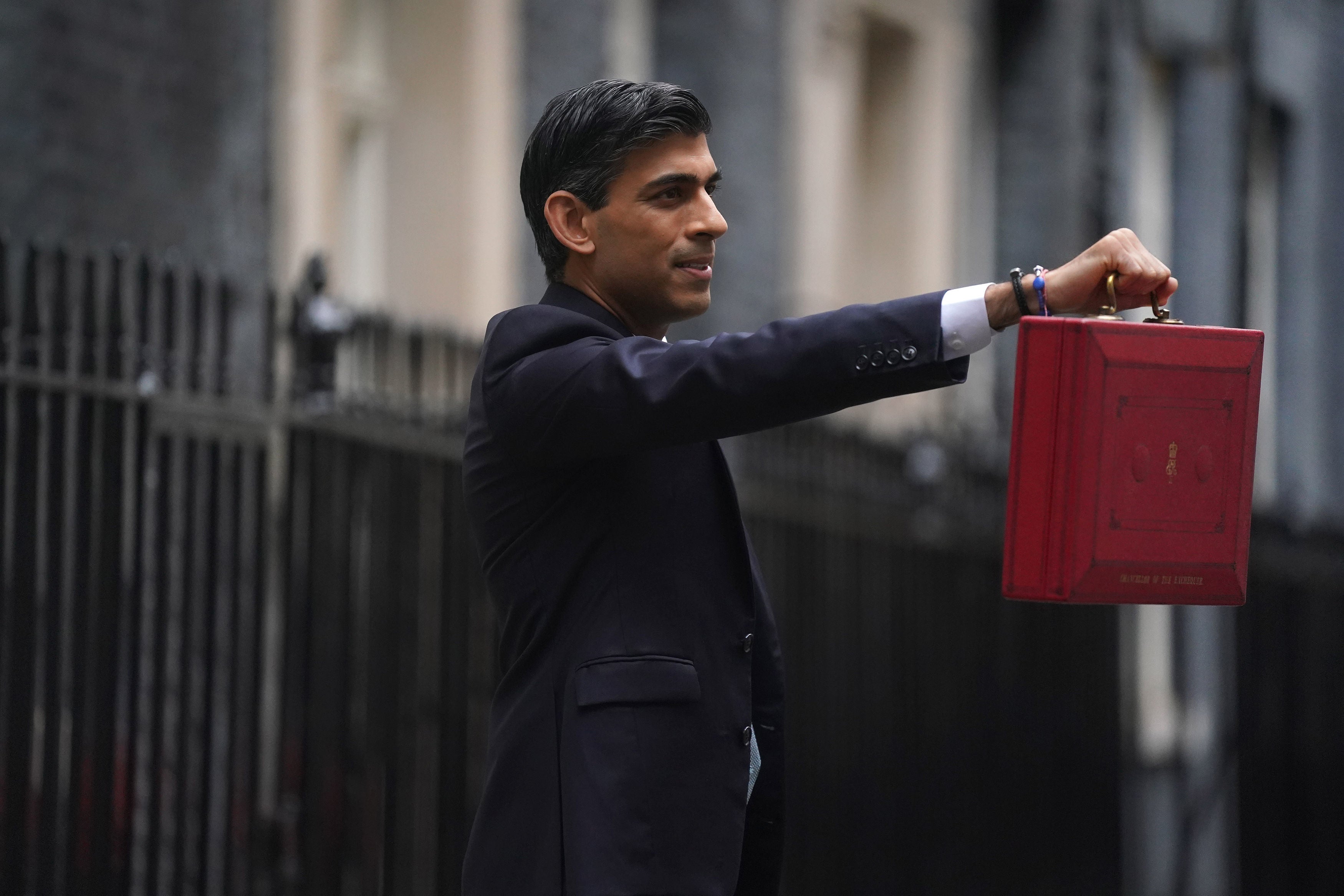Sunak defends government’s record of stagnant wages and ‘high tax, low growth’ economy
Chancellor grilled over projections that wages are forecast to barely rise in 14 years of Tory-led governments

Chancellor Rishi Sunak has defended the government's failure to improve UK living standards and acknowledged that hitting the his new budget targets would be a challenge.
Facing a grilling from MPs on the Treasury Committee, Mr Sunak was accused of failing to create the high-skilled, high-wage economy that the prime minister has promised.
Labour’s Angela Eagle pointed out that workers had experienced more than a decade of stagnation with the government’s own forecasters predicting several more years of low earnings growth.
Between 1992 and 2008, real wages went up by 36 per cent but in the years from 2008 to 2024, the the Office for Budget Responsibility expects a rise of just 2.4 per cent, Ms Eagle said.
The chancellor argued the UK was “not alone” in experiencing lacklustre wage growth. He pointed to reasons for optimism such as increases in the minimum wage and government investment in research, development and skills.
However, he conceded that it had been “a struggle to get to some of the growth rates we saw previously”.
Labour MP Siobhan McDonagh said Mr Sunak had hoped to emulate Margaret Thatcher, but had instead come closer to Ted Heath’s, “low growth and therefore high tax” government.
Sunak replied: “Actually, we’re forecast this year to grow at, well, historically very high rates as we recover from the pandemic.”
Committee chair Mel Stride quizzed the chancellor on how he will meet the new spending rules he announced at last week’s Budget.
Mr Sunak wants all everyday government spending to be paid for through taxation rather than borrowing, and underlying debt to fall as a percentage of gross domestic product (GDP). Both rules must be met by the third year of every forecast period.
Mr Stride said that while the OBR "didn't say not a cat in hell's chance" of hitting his targets, it does appear there is a "strong risk those targets will not be met".
The OBR’s charts put Mr Sunak's chances of hitting the targets at 55 to 60 per cent.
Earlier in the day, OBR chairman Richard Hughes suggested the Treasury may struggle to achieve its aim, and would be in for a “wild ride”, especially if interest rates rise.
He said: “The Chancellor set himself some new fiscal rules in this budget and they are to get debt falling as a share of GDP (gross domestic product) by 2024/25 and balance the current budget.
“The headroom he set aside to reach those targets is the second-lowest headroom that any chancellor has had when setting fiscal rules.”
He added: “Just a 1 per cent interest rate rise could easily wipe out the chancellor’s headroom.”
Join our commenting forum
Join thought-provoking conversations, follow other Independent readers and see their replies
Comments
Bookmark popover
Removed from bookmarks